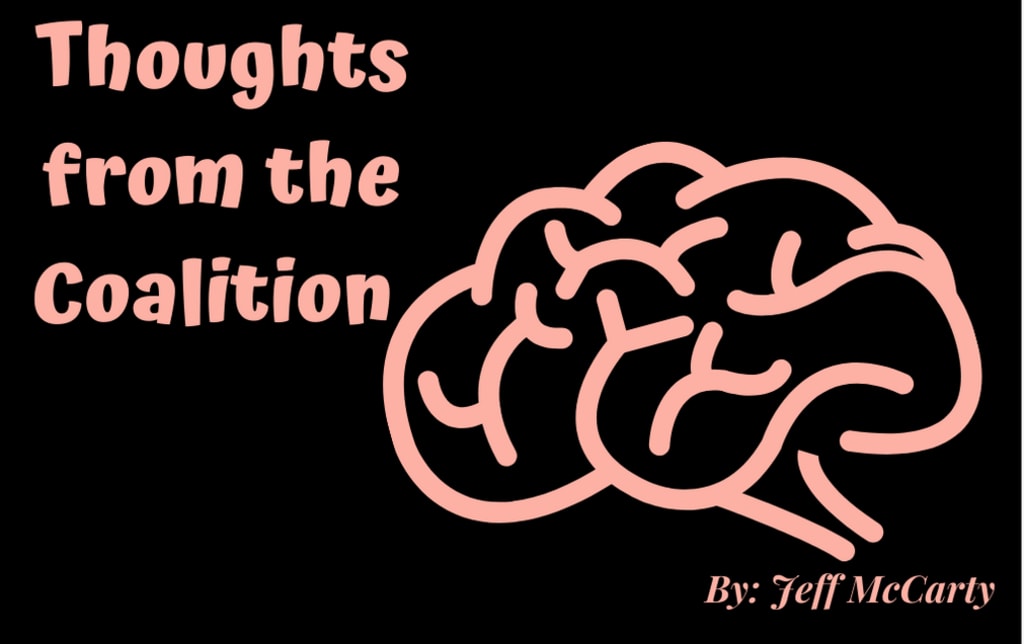Three variables of problem prioritization
Thoughts from the Coalition

As human beings, there are numerous things to do and minimal time to do it. What gets done now and what should get done later is a question we consistently ask ourselves as we decide which actions to take in our day to day lives. Consciously and subconsciously we organize the actions we take in a sequential order that is to our pleasing as an individual human being. While it is common that unforeseen circumstances can always alter the sequence in which our actions may end up unfolding, most human beings tend to realign themselves to the initial sequence they set out before the unforeseen circumstance had occurred. As human beings, we must utilize this ability to prioritize the actions we take as individuals and expand its use to how we solve the problems that will affect our existence as the human species.
With prioritization, we can begin to clearly understand the problems that we need to act on first. As a species, we will understand the most pressing problems that we must attend to first if we are to eliminate the problems that will affect humanity’s existence. It’s one thing to prioritize a Sunday chores list, the task of prioritizing a repository of problems that face humanity is a perplexing puzzle to solve that will take much more scrutiny. As the HCRC, we believe that the only way to build a better global human civilization is through this prioritization of our problems, for without an understanding of which problems threaten the existence of humanity, we will sit aimlessly as our attention is focused elsewhere.
When most human beings set priorities, the most practical and common way people determine the priority of a task is to measure the importance of the task relative to the urgency of the task. As a species, we must determine how we prioritize the problems that would be listed in a humanity’s problem repository. There are many variables that weigh into the decision of what problems would be prioritized first and what problems may fall later in the list. One thing we must remember though is as a species that is estimated to have around seven to eight billion members, we have the ability to synergize and work towards solutions on multiple problems at once. Where alignment of behaviors and beliefs is more necessary is in the day to day actions that we take as individuals, for in these actions is where the change needs to occur for us to solve the majority of the problems that can affect humanity’s existence. With prioritization of the problems themselves, it can remind us as individuals how important it is to consider the impact of our actions and how they can contribute or diminish our ability as a species to solve a specific problem facing humanity.
As the HCRC, we believe the first of many factors that weigh into the prioritization of a problem is the number of people that would be affected by that specific problem. Logic would say that the more people that are affected by a specific problem than the higher a priority that problem should then become. Mathematically speaking the less human beings that are being affected by a specific problem could then help turn out more productivity for the species, and the more human beings living their lives more productively, the higher the probability is for us as a species to solve more problems that are facing humanity. This can be the case, however, there is another factor that we must account for that can determine if we would defer to prioritizing a problem that affects more human beings higher compared to a problem that affects a lower number of human beings.
The next factor that we must consider before determining a prioritization rank for any one problem facing humanity is the degree in which a human or humans would be affected by the specific problem. If we were to just look at a problem and prioritize it by the number of humans who would be or are affected by the problem, we may miss prioritize a problem that affects fewer people, however, it affects them more severely. For example, let’s say we have a problem that is causing millions of human beings to have daily migraines. In this scenario, this problem is affecting a lot of people in a way that is not immediately detrimental to their lives, yet a problem nonetheless that could decrease a human’s productivity. Now let’s say we have another problem occurring that is causing thousands of humans to lose their life. Between the two it would make obvious sense to prioritize the problem that is going to cost other humans their lives higher compared to the problem causing millions of humans migraines. With this balance of measuring how many humans are affected relative to the degree in which they will be impacted, we can more properly prioritize the problems facing humanity.
There is one more factor though that we must consider before we can determine the prioritization rank that a problem should receive. We must consider the timeframe it will take for the problem to affect humanity. We can illustrate the importance of this consideration through the use of our prior example. Let’s say that problem A, the migraine problem, is a problem that is currently affecting human beings. Then we have problem B, the problem costing humans their lives, this is a problem that is not yet occurring but is due to take place starting in ten years if nothing is done. When we look at both of these problems with this new information taken into consideration, it should alter our perspective on which problem receives a higher priority ranking.
As the consciousness of our species continues to evolve the more we will come to find problems that could affect our species. Determining the problems that are most important for our species to solve is challenging since as human beings, we will prioritize the problems that face humanity based on the perceptions that we currently have. It is vital to understand that the use of prioritizing problems does not mean that we only solve one problem at a time, but that we have a bigger understanding of specific problems that may be affecting us personally and how they interrelate to the problems that face our global human civilization. With that in mind, join us next Friday as we discuss how to ensure the integrity of the Humanity’s Problem Repository as problems begin to get listed, categorized, and prioritized.
Until next time, I am Jeff McCarty and I just want to thank you for your time in reading. If you enjoyed this post, please share this with someone you think would enjoy it. Find the Human Civilization Reformation Coalition on Facebook for more content as well. Looking forward to seeing you next post. Thanks again.
About the Creator
Jeff McCarty
I create content for a nonprofit organization, called the Human Civilization Reformation Coalition. Our focus is positively progressing humanity. All tips go towards the nonprofit organization, and the further creation of content.
Enjoyed the story? Support the Creator.
Subscribe for free to receive all their stories in your feed. You could also pledge your support or give them a one-off tip, letting them know you appreciate their work.






Comments
There are no comments for this story
Be the first to respond and start the conversation.